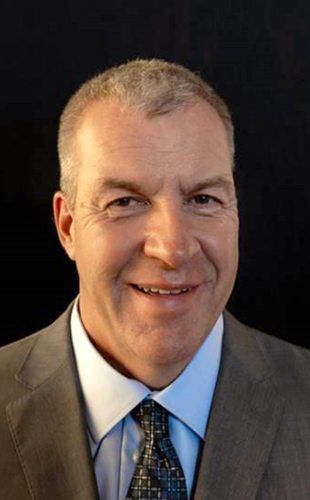Officials at Five Flags Center in Dubuque said varied state responses to COVID-19, industry impacts from the pandemic and creative marketing have brought the venue to its best financial standing in years.
“We are the busiest venue in Iowa and one of the busiest in the United States for the time being,” General Manager H.R. Cook told the City of Dubuque’s Five Flags Commission this week.
When the COVID-19 pandemic hit in March 2020, it spelled certain gloom, if not doom, for venues everywhere as they were forced to shut down for months. As of September 2020, Five Flags had lost at least $500,000 in revenue just in projected ticket sales.
“This COVID couldn’t have hit at a worse time,” Cook said after the meeting. “It’s similar to a retailer doing all of their business just before Christmas. Our Christmas is between March and June.”
However, Iowa Gov. Kim Reynolds was among the first governors in the nation to rescind gathering limitations in February when she loosened most of the state’s COVID-19 restrictions. That allowed Five Flags staff to take an aggressive approach to their bookings, Cook said.
Five Flags is operated by ASM Global, which in the early days of the pandemic developed safety precautions to operate a venue while protecting against the spread of COVID-19. The protocols include mask requirements, temperature checks, social distancing and queuing changes.
Cook told the commission that the program has worked well at Five Flags.
“We’ve had some very successful smaller shows at the theater that led us to believe, correctly, that the public, if given the chance and given the education to wear their mask, would do the right thing,” he said.
The real first test came in the form of the Lee Brice concert in March that sold 2,000 tickets. Cook said the event proved that attendees could follow the rules.
“After the Lee Brice show, we stood at the exit and noticed that even after that long evening, we were still at about 80% of the people who still had their masks on,” he said. “As you go through the evening, you might get a little less strict with yourself, but almost everyone still had their masks when leaving.”
Faced with filling the venue’s calendar, Cook took advantage of states’ varying pandemic protocols and the realities of the road.
He said that while there were acts seeking venues, most buildings in the Midwest were still closed. Five Flags staff reached out to other Midwestern venues that were open to assemble proposed tour routes for different acts that would include Dubuque.
“Then, we went to the agencies and said ‘Look, we have these buildings open. You can play us Thursday, Friday, Saturday, Sunday, and make a quick run from Nashville up here,’” Cook said.
Cook also aggressively sought out non-musical programs, again taking advantage of states where venues were closed.
“We went into states like Wisconsin, Illinois and Minnesota and, for lack of a better word, poached the sporting events — like wrestling invitationals, volleyball tournaments,” he said. “We said, ‘Whatever you need us to do to make it safe — temperature checks, distancing, sanitation, crowd limits — we can do.’”
Five Flags also benefited from savings made through staff layoffs and furloughs and utilities and operations costs during the months it could not operate.
“Many other buildings, almost all of them, went from breaking even or losing $100,000 or $200,000 like they normally do, to losing millions of dollars,” Cook said. “With our salary savings from the furloughs, along with the revenue and other expenses we’ve saved, we’re actually in probably the best financial condition we’ve been in for several years.”
He said he expects to come in well under the $908,000 loss threshold expected by the city this year.
Commission Member Bryce Parks said the center’s success should be used to encourage support from Dubuque City Council members during their August goal-setting sessions.
“Five Flags has come back out of the COVID situation better than most venues in America, with the success they’re having with booking,” he said. “While other people are still struggling to find their way back, Five Flags is roaring back already.”
Commission members this week also discussed plans to promote a proposed ballot measure for an estimated $75 million expansion of Five Flags. City Council members agreed last year to postpone the referendum and table the issue until 2022 due to the pandemic.
Cook said he thinks having a plan in place for the project could allow the city to benefit from any large infrastructure bill Congress may pass. That could reduce the city’s share of the costs enough to make it more palatable to voters concerned about the price tag, he said.


